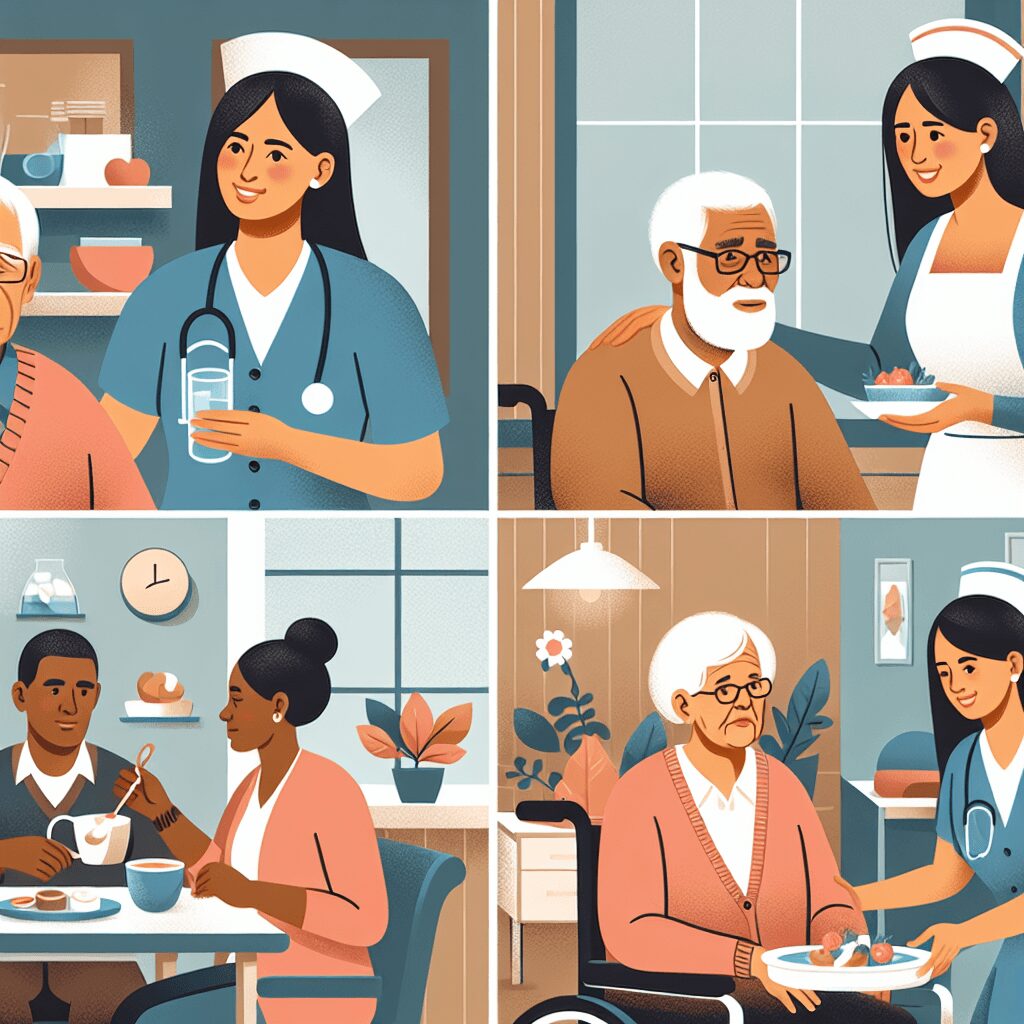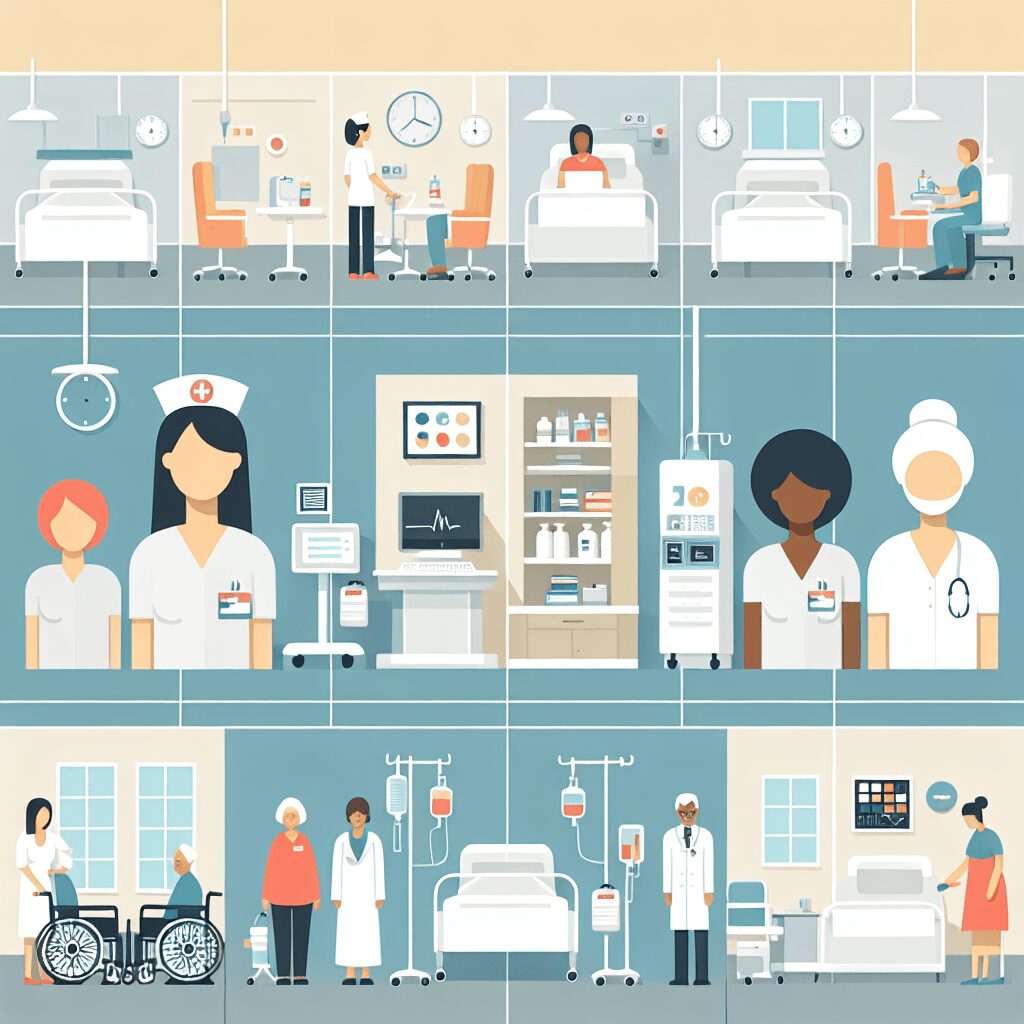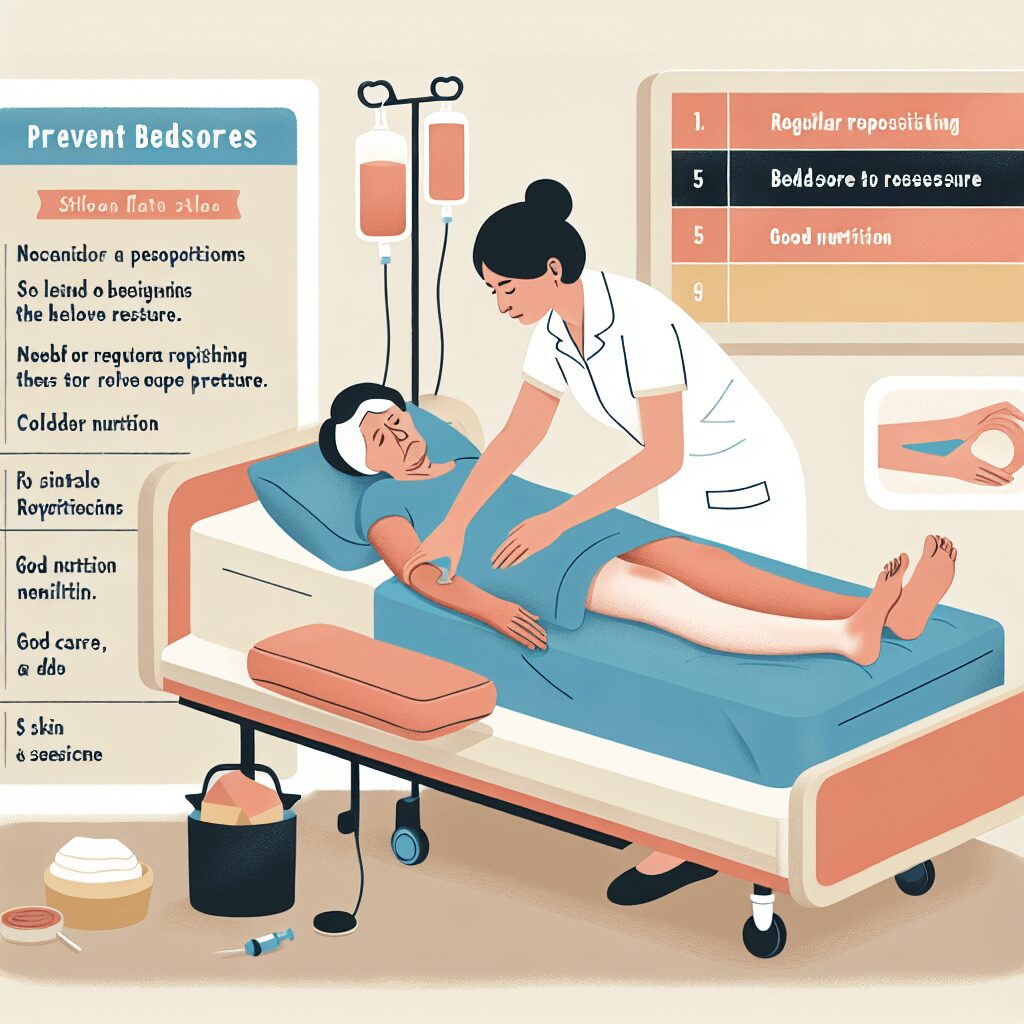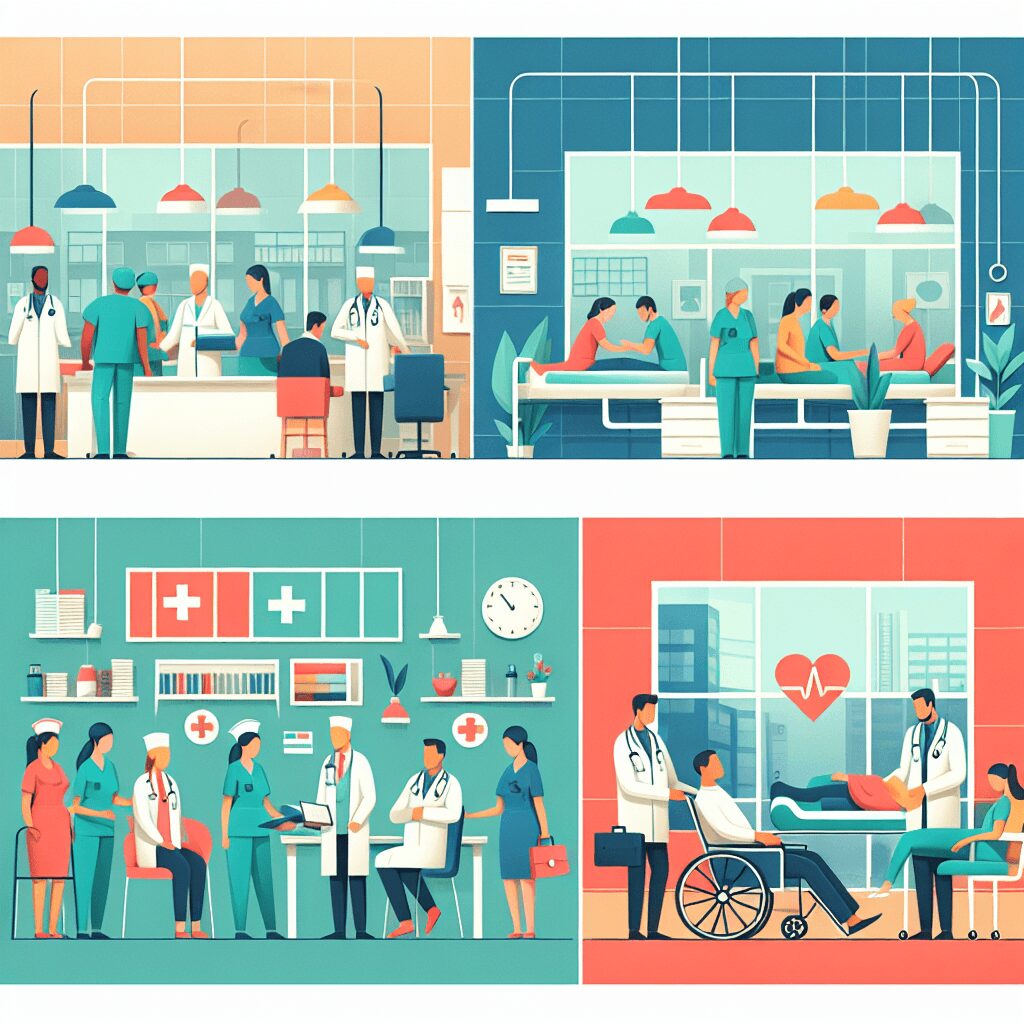Are you unsure about the different levels of care available for your loved ones? Skilled nursing care, assisted living, and nursing homes each have unique roles to play.
Skilled nursing care is crucial for individuals requiring specialized medical care and 24/7 attention.
Let’s delve into what skilled nursing care involves, who might find it beneficial, and how to select the appropriate facility.
Understanding this type of care is key to making informed choices regarding your family’s well-being.
Understanding Skilled Nursing Care
Skilled nursing care is medical care provided by licensed health professionals. This care can be in facilities like skilled nursing facilities, assisted living communities, or even at home, with a physician overseeing the patient’s care through trusted home health agencies. These facilities offer round-the-clock assistance with healthcare.
Activities of daily living like physical therapy, occupational therapy, and speech therapy are also provided for individuals needing specialized care due to health conditions like strokes, surgeries, or chronic illnesses.
When looking for skilled nursing care, it’s important to consider the expertise of the healthcare professionals. The quality of services offered and the overall comfort and support provided by the facility are important factors to consider.
Choosing skilled nursing care is crucial for individuals who need intensive care and monitoring, especially after a hospital stay. Tips for finding quality skilled nursing care include researching facility ratings, visiting and observing the facilities, and asking questions to understand the level of care provided. Finding skilled nursing care that meets the specific healthcare needs of the individual is important for their well-being and recovery.
What is Skilled Nursing Care?
Skilled Nursing Facility vs. Nursing Home
Skilled Nursing Facilities and Nursing Homes differ mainly in the care level and stay duration they offer.
Skilled Nursing Facilities provide temporary, medically necessary rehab treatment. Nursing Homes, on the other hand, are typically permanent residences for those needing custodial care.
In Skilled Nursing Facilities, care is provided by trained medical professionals such as licensed nurses, therapists, and pathologists. Nursing Homes focus on 24/7 long-term custodial care, helping with daily activities.
Skilled Nursing Facilities provide specialized services like physical therapy, occupational therapy, and speech therapy for recovery and functionality. Nursing Homes offer ongoing support with daily activities, medication management, and basic care.
Benefits of Skilled Nursing Care
Skilled nursing care is a higher level of medical assistance. It’s more advanced than assisted living or home health care.
Skilled nursing facilities employ healthcare professionals such as registered nurses and therapists. They offer specialized medical care for people recovering from surgery, illness, or injury.
Each patient gets a personalized care plan to meet their specific health needs. The staff can handle complex treatments like wound care, IV medications, and catheter care.
These facilities provide 24/7 monitoring by registered nurses to ensure continuous care. They focus on medical equipment, physical therapy, occupational therapy, and speech therapy.
Skilled nursing facilities help patients recover better with personalized care plans and advanced medical treatments. Continuous monitoring by registered nurses leads to improved health outcomes.
The experienced staff can manage complex conditions and provide specialized services. Therapies like physical, occupational, and speech therapy help patients regain independence.
In-Home Nursing Care for Personalized Alternative to Nursing Facilities.
Nursing facilities provide vital medical care and supervision for individuals in need of continuous health support but may not always accommodate personal preferences and specific needs. The institutional setting, structured routines, and shared spaces can impact privacy and independence. The standardized care may not offer the individualized attention some patients require.
In-home nursing care provides an appealing alternative, offering personalized care plans tailored to specific medical needs and daily living requirements. This approach ensures that the care provided aligns closely with the patient’s preferences, promoting greater comfort and well-being. In-home nursing care also offers the flexibility to address changes in health status quickly, providing a more adaptable and responsive level of care compared to a nursing facility.
In-home nursing not only supports medical needs but also helps maintain a higher quality of life. Patients can stay in familiar surroundings, maintain their routines, and have more control over their environment. This personalized and comfortable setting can lead to better mental and emotional health, fostering a sense of independence while still accessing the professional care and support they need. For many, this balance between high-quality medical care and the comfort of home makes in-home nursing a preferable choice to traditional nursing facilities.
Services Offered in In-Home Nursing Care:
-
IV Therapy: In-home nursing care includes administering intravenous therapy to patients who require fluids, medications, or other treatments delivered directly into the bloodstream.
-
Administering Injections: Qualified nurses can administer injections, such as insulin or vaccinations, to patients in the comfort of their own homes, ensuring timely and safe delivery of medications.
-
Preventing Falls: In-home nurses implement fall prevention strategies and conduct home safety assessments to reduce the risk of falls for patients, especially those with mobility issues or balance problems.
-
Heart Failure Patient Care: Specialized care plans are developed for patients with heart failure, including medication management, symptom monitoring, and lifestyle modifications to optimize heart health.
-
Patient Education: In-home nurses provide patients and their families with education on managing chronic conditions, medication adherence, and promoting overall health and well-being.
-
Colostomy Care: Patients with colostomies receive expert care and support from in-home nurses, including assistance with stoma care, appliance changes, and addressing any complications.
-
Vital Signs Monitoring: Regular monitoring of vital signs, such as blood pressure, pulse, and temperature, helps in-home nurses assess patients’ health status and detect any changes or abnormalities.
-
Respiratory Care: Patients with respiratory conditions, such as COPD or asthma, receive personalized respiratory care plans, including medication management, oxygen therapy, and breathing exercises.
-
GI Tube Feeding Assistance: In-home nurses assist patients with gastrostomy or jejunostomy tubes by providing tube feeding assistance, monitoring for complications, and ensuring proper nutrition and hydration.
-
Oncology Care: Patients undergoing cancer treatment receive comprehensive oncology care at home, including symptom management, chemotherapy administration, and emotional support for patients and their families.
Why Choose Skilled Nursing Care?
Experienced Staff
Staff members at the skilled nursing facility have specific qualifications and experience. They include registered nurses, licensed practical nurses, speech/language pathologists, physical therapists, and occupational therapists.
These professionals provide skilled nursing care to residents. Their expertise in specialized therapies, wound care, IV therapy, injections, and monitoring of vital signs ensures that residents receive high-quality care tailored to their specific needs.
Medical directors, nutritionists, and social workers further enhance the level of care provided at the facility. Together, they contribute significantly to the quality of care by offering round-the-clock monitoring, personalized care plans, and advanced medical treatments.
The staff’s knowledge and skills enable them to deliver services like physical therapy, occupational therapy, and speech therapy. These therapies aim to improve residents’ strength, balance, independence in daily activities, and communication and swallowing abilities.
The staff’s compassionate and dedicated approach creates a supportive and comforting environment for residents, fostering physical and emotional well-being. Their commitment to excellence ensures that residents receive the best possible care to maintain and improve their health and overall quality of life.
Customized Care Plan
Skilled nursing care involves trained professionals providing care services for injury or illness. Examples of these services include post-operative wound care, injections, catheter care, and monitoring vital signs.
A skilled nursing facility is a temporary residence for patients undergoing rehabilitation. In contrast, a nursing home is a permanent residence for individuals needing 24/7 care.
In a skilled nursing facility, patients receive round-the-clock assistance with healthcare and daily activities. Medicare covers post-hospital care, and those needing it can stay up to 100 days if they meet specific requirements.
Patients in skilled nursing facilities have legal rights protection and can report discrimination. Care plans are personalized to meet individual needs and preferences, including cultural and dietary considerations.
FAQ
What is skilled nursing care?
Skilled nursing care is professional medical care provided by licensed nurses and therapists. It includes services like wound care, medication management, and rehabilitation therapy.
Who provides skilled nursing care?
Skilled nursing care is provided by registered nurses (RNs), licensed practical nurses (LPNs), and certified nursing assistants (CNAs) in hospitals, nursing homes, rehabilitation centers, and home health agencies.
What types of services are included in skilled nursing care?
Skilled nursing care services include medication management, wound care, physical therapy, and assistance with activities of daily living such as bathing, dressing, and eating.
How is skilled nursing care different from assisted living or home health care?
Skilled nursing care provides medical services like wound care and medication management, while assisted living focuses more on helping with daily activities. Home health care offers medical services at home, whereas skilled nursing care is provided in a facility.
How can someone qualify for skilled nursing care?
To qualify for skilled nursing care, an individual typically needs a referral from a doctor or hospital discharge planner, as well as meeting specific criteria for services such as needing 24-hour monitoring or therapy following surgery.
Experience top-tier medical support with ABET Life Home Health & Caregiving’s skilled nursing services. From medication management to specialized treatments, our licensed professionals ensure thorough and precise attention to all your loved one’s medical requirements. Rest assured knowing their health is in capable hands.








